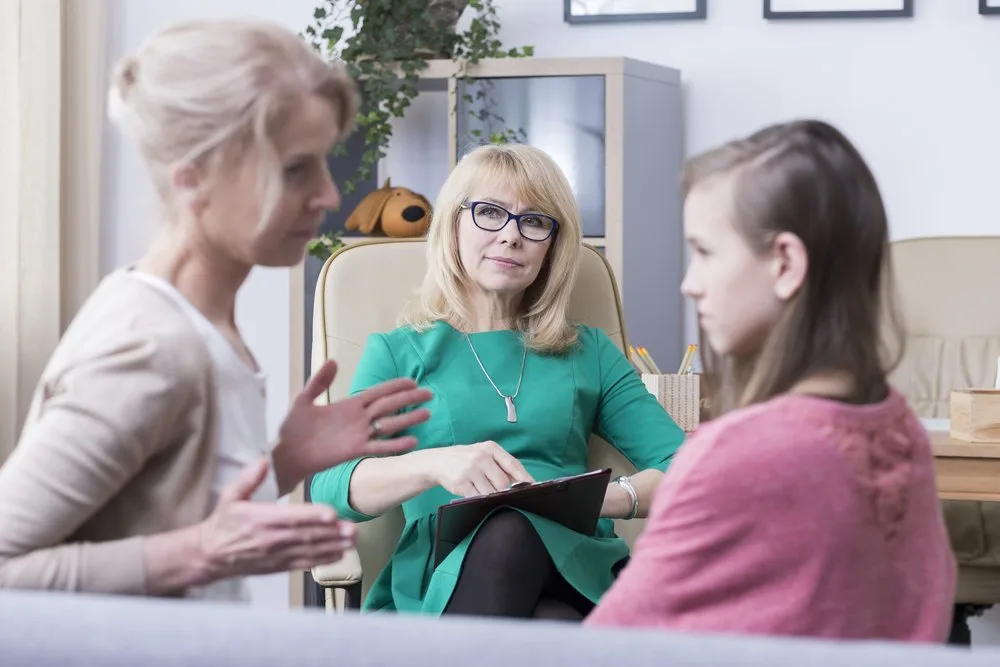Society incessantly demands that you should either be producing or consuming. Of course, at all costs, do not fall behind on account of your purported “poor mental health”. If you do, be prepared to be labeled as “lazy” or “incompetent” or, worst of all, urged to stop “choosing” to feel that way. A lack of understanding and misinformation is the smoke to the fire that is mental health stigma.
Accessing mental health services is only one step in the healing process, but it’s not the first. Typically, people who are unable to cope (because of a fragile mental state) are reluctant to seek help because of negative attitudes towards it. So, the first step to shift the mental health paradigm should occur outside the psychologist’s office.
Why public stigma obstructs our access to mental healthcare
During a recent Longevity-hosted Wellness Wednesday session, we spoke to Dr Anusha Lachman, President of the South African Society of Psychiatrists (SASOP). She is a child psychiatrist and head of the clinical unit at Tygerberg Hospital at Stellenbosch University, which is in the Western Cape in South Africa. In November 2023, she was part of an SASOP conference to discuss interventions that delegate mental healthcare at a community level. We certainly invited her to share more about this.
The aim is to encourage conversations with the unheard voices of the South African public grappling with mental health issues. Dr Lachman explained that the problem is not just the inability to offer the right services to the greater public. It’s also about the barriers preventing people from accessing care, with public stigma being the biggest one.
Communities do not understand that mental health is a spectrum
Public stigma involves inaccurate stereotypes. A lack of awareness about the many shades of mental health, and who gets it, has made us typecast it as this serious condition that requires hospitalization. However, most mental health disorders (such as depression and anxiety) are common but are internalized by those affected in fear of being shamed. People can openly discuss their physical health issues but are scared into silence when it involves a psychiatric disorder. This disparity in esteem lies in the obscurity of what exactly mental health issues look like.
“If we think about depression and anxiety, [they are] far more common. Severe mental illnesses, like schizophrenia or bipolar, [only occur] in less than 1% of the population. So, the question we [must] be asking is: are we missing it? Why are we missing it? And if we recognize it, why are we reluctant to seek help? What does that mean for us? How does it feel to a person who is experiencing a mental health problem? “What is it like for the families?” probed Dr Lachman.
Where exactly does mental health vulnerability start?
The prenatal and postpartum conditions of a pregnant woman’s environment will influence her child’s susceptibility to mental health issues. Why is this? Well, according to UNICEF, the first 1000 days of life offer a crucial window of opportunity to shape a child’s development and lifelong well-being. However, a child can be impacted for the worse should a disadvantage strike during this period.
Understandably, pregnant women are urged to avoid smoking and alcohol and eat nutritious foods to support healthy fetal development. Yet no mention of environmental stresses to steer clear of or better manage is made. It is burdensome being involved in domestically violent relationships, meeting intense work demands, and facing stigma.
Indeed, these pressures seep into the postpartum period too. Women crumple under the weight of juggling their physical and mental health while balancing work with family life. Sadly, avoiding the shame around a woman’s failure to perform is of more concern than the mental impact on a woman and her child.
Labeling “baby blues” as normal is an oversight
“In South Africa, local statistics show that we have a [postpartum depression] prevalence rate of between 30 and 32%. That is shocking. [It’s] not just about being poor or having socio-economic disadvantage. It’s not about education levels. It’s about the fact that [women] have a vulnerability in this setting and we don’t talk about it enough. That’s where [the problem] starts,” expressed Dr Lachman.
The reason we miss depression is because “baby blues” are considered normal. We anticipate hormonal changes, poor sleep, and a low mood in the first 72 hours postpartum. However, mothers can usually recover physiologically and emotionally after that. Undeniably, the woman is adjusting to a new baby and life. But it’s not natural for crippling stress, apathy, and serious dips in motivation to persist. We need to ask what environmental vulnerability (like a lack of support, unrealistic expectations, public stigma, etc.) is responsible for the persistence.
How much of our mental health is a product of our DNA, and how much is our environment?
Uncommon mental illnesses (like schizophrenia and bipolar disorder) stem largely from having specific genes. More prevalent mental disorders typically arise from gene-environment and experiential impact, which are dynamic. However, a genetic predisposition, early trauma/injury, or whatever made the brain vulnerable, is not enough to create mental illness alone. Dr. Lachman explained how our experience of our environment generally enables them.
For example, a child may be vulnerable if they have a learning disability. This is not necessarily a bad thing, unless their environment poses shortcomings. The child may not have enough money to match up to their peers, be in an unaccommodating school, or be in a setting fraught with violence or bullying, etc. Experiencing these collective pressures can prey on a preexisting vulnerability.
Creating a safe work environment can help people speak up
Many businesses have created “health and wellness days” and team-building activities. Of course, these are excellent initiatives, but it’s not adequate. Public stigma is still rife and creates the assumption that you are impaired if you have a mental health disorder. Naturally, why would we take a risk only to be perceived as “less than” and unable to perform our job optimally?
Dr. Lachlan discussed the importance of a work environment where trust and honesty are welcomed. Employees should be able to disclose their experience to their manager without punitive consequences.
She further shared ideas on how employers can create a safe employment space:
- Managers at all levels should receive basic training on mental well-being and empathic responsiveness.
- Create either an HR or anonymous space where employees feel comfortable enough to speak without fearing disciplinary action.
- Ensure that mental health resources are readily available.
- Establish boundaries on work demands and hours when everyone benefits.
It’s our collective responsibility to support mental health and end public stigma
Why do we wait for someone to have such a significant breakdown to the point of impairment before we help them? Support is not exclusive to those on the debilitating end of the mental health spectrum. Members of the community can take supportive action by paying special heed to those in their social, work, and family circles. Life is hard, but it is important to validate experiences when life is harder than normal. Take time to listen and notice the signs when someone is not coping.

Dr Anusha Lachman
Dr. Lachlan stressed that signs of depression are not limited to incessant crying and isolation. Other warning signs include:
- Comparison to others
- Lack of enjoyment and interest in things
- Complaints about sleep/tiredness
- Frequently minimizing oneself
- Expressing that one does not have their life together
- A general negative sense of the environment that one is in
Query someone on their wellbeing if there is an indication that something is amiss. Validate their feelings and ask whether they need help of some kind.
“It’s about us being human. Before we are patients, doctors, and therapists, we are human beings first. We have to rekindle that empathetic side to ourselves that we often miss. Everyone’s in a rush. And if you’re in such a rush, you miss what’s happening all around you. They [say] take time to smell the flowers. It’s not just about buying someone a bunch. It’s taking that time to sit back and recognize it,” mused Dr Lachlan.
The bottom line
Someone with crippling anxiety may be told to calm down because “it’s all in their head”. Another person suffering from depression may be criticized for not “getting over it” because “other people have it worse in life”. It is not easy to get the help you require when surrounded by public stigma. That’s why we need to do our part, as human beings, to lay the first stepping stone to recovery. Change the conversation from “Life is hard, get over it” to “Life is hard, but why is that and what help do you need?”.
Watch the full Instagram interview below
View this post on Instagram
References
PhD, Cusick, S; MD, Georgieff, M.K. (2013, April 12). The first 1,000 days of life: The brain’s window of opportunity. UNICEF. https://www.unicef-irc.org/article/958-the-first-1000-days-of-life-the-brains-window-of-opportunity.html
Article Image Source: Stellenbosch Univeristy
MAIN IMAGE CREDIT: Photo by Photographee.eu/Shutterstock



![women [longevity live]](https://longevitylive.com/wp-content/uploads/2020/01/photo-of-women-walking-down-the-street-1116984-100x100.jpg)










